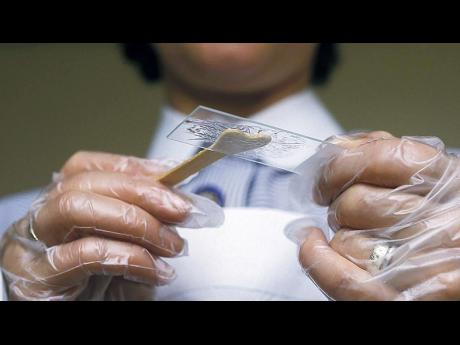Protecting yourself from cervical cancer
Recently, there has been a lot of talk about woman empowerment, and the strength of a woman, but what more empowerment can we have than the freedom and ability to protect our bodies from certain illnesses like cervical cancer?
As a part of my job, I get to ask women daily, "When was your last Pap smear?" The responses always come with a sigh, and questions such as:
- Why is it important?
- What's all the fuss?
- Do I have to do a Pap smear?
- Do I have to do it every year?
- Is there anything easier?
- What about the vaccine?
So, after being challenged by a colleague to take the vaccine, similar to the ice bucket challenge, I decided to write this.
I will now go ahead and answer each of those questions.
WHY IS IT IMPORTANT?
Cervical cancer is the second leading cause of cancer-related deaths in women. It is second to breast cancer. In Jamaica, there are approximately 30 cases for every 100,000 persons. Seems small, yes, but for comparison, Cuba has single-digit figures, meaning fewer than 10 for every 100,000 persons.
WHAT'S ALL THE FUSS?
All the fuss is that, the biggest most important fact about cervical cancer is that it is a preventable cancer! It is preventable because we know what causes it, and how to detect it and treat it before it causes cancer.
THE CAUSE
It is caused by a virus, the human papillomavirus, or HPV for short. HPV is a sexually transmitted virus that is transmitted by skin-to-skin contact. Most people are infected for the first time by age 25, and 80 per cent of sexually active individuals have contracted HPV in their lifetime. With such statistics, you are probably wondering then why is the prevalence of cervical cancer not higher?
There are many different types of HPV. Type 16 and 18 account for 70 per cent of cases of cervical cancer, with Type 45 and 31 the next most common cause. Type 6 and 11 cause genital warts. HPV also causes penile cancer.
HPV causes no signs or symptoms, and some persons never develop any problems from HPV. Approximately 20 per cent of women develop precancerous cervical lesions, which, if not detected, progresses to cancer.
DO I HAVE TO DO A PAP SMEAR?
The solution to the HPV and cervical cancer problem is the Pap smear, so the answer is YES!
The Pap smear detects the changes in cervical cells caused by HPV, before they get to a precancerous stage. It is a short, simple, yet necessary procedure. I always tell my patients, it is 30 seconds of discomfort that could save your life.
DO I HAVE TO DO IT EVERY YEAR?
The Pap smear is generally done between the ages of 21 and 65 years, and should be done every one to two years. There are, however, exceptions to this, and your gynaecologist will usually advise you as to when to have your next one done.
IS THERE ANYTHING EASIER?
Even if vaccinated for HPV, the Pap smear will still have to be done, so there is no escaping it. The changes caused by HPV are progressive; you don't jump from normal to cancer, and that is how the Pap smear helps with prevention. We can detect these early changes and treat them before they get to even a precancerous stage.
THE VACCINE
There are two preparations (brands) on the market. Available data states the vaccine helps prevents cancer in up to 90 per cent of cases. It is given as three doses over a six-month period.
Ideally, it should be given to young women at age 10 (before the time of first sexual intercourse). However, it can still be given after being sexually active, and after having HPV.
The vaccine works by enabling your body's immune system to attack the virus and prevent it from invading the body's cells, where it usually causes its damage.
Patients can still develop cervical cell changes after getting the vaccine, as the vaccine doesn't protect against all types of HPV. So, as said before, doing your Pap smears will still be required.
Males can also get vaccinated. Yes! One of the available preparations is approved to be given to males as well as females. It protects them from genital warts, and also helps prevent transmitting HPV to females.
So, in closing, when next you are asked about doing your Pap smear and cervical cancer prevention, and you get the urge to start to ask questions, or simply just shy away from doing it, just remember:
- Yes! It is important.
- It is a preventable cancer.
- The vaccine helps with prevention ...BUT ...
- The Pap smear is the key to prevention.
- Dr Rhonda Reeves is a consultant obstetrician/ gynaecologist at Southdale Medical & Gynae Centre; email: yourhealth@gleanerjm.com


